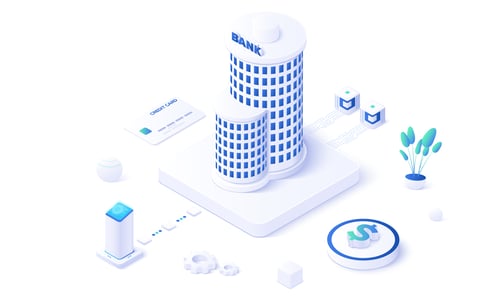5 Reasons to Have a Fintech Manage Your Supplier Payments

Electronic payments have raced up the agenda of finance leaders.
More businesses of all sizes are automating their payments to suppliers to reduce operational costs, better manage their working capital, enhance supplier relationships, and mitigate fraud risk.
Seventy-one percent of businesses plan to automate their payments to suppliers, either for the first time or by deploying more technology, the Institute of Finance and Management (IOFM) reports.
But digitizing payments to suppliers is no small feat. Few payables’ departments have the resources to enroll and enable suppliers. Maintaining multiple systems for all the ways that suppliers want to get paid is costly and time-consuming. Managing supplier contact information is time-consuming and error-prone and manually verifying supplier banking details is risky. In addition, keeping up with ever-evolving security threats and bank connectivity can be a tremendous burden on a company’s limited IT resources.
More than ever today, businesses cannot afford to let these obstacles stand in the way of their automation initiatives.
That’s why more businesses are leveraging Fintechs to manage their payments to suppliers.
Having a Fintech manage your payments provides five major benefits over doing it yourself:
- Streamlined operations. Paper checks are losing their grip on payments to suppliers due to current realities. Businesses now pay suppliers via Automated Clearinghouse (ACH), wire, card, and more. And soon, RTP may be in the mix. Managing standalone systems or bank portals to initiate all these types of payments is a tremendous burden on weary treasury staff and complicates the reconciliation process. Leading Fintechs provide an all-in-one platform for paying suppliers in their preferred method. The buyer uploads a file of invoices ready-to-pay from their enterprise resource planning (ERP) application and the Fintech’s platform transmits those files to the preferred banks, generates remittance details, and reconciles the payments in real-time.
- Supplier analysis. Achieving the optimum payments mix requires accounts payable and treasury to understand the needs and payment preferences of their suppliers. Few companies have the time or the expertise to undertake this effort. After all, a buyer may have tens of thousands of suppliers with significant churn in its supplier base each year. Fortunately, leading Fintechs analyze a buyer’s spend file as an initial step in their electronic payment initiative. By segmenting suppliers based on attributes such as their willingness to accept virtual card payments, existing payment terms, the total value of spend, and their standing with the buyer, a Fintech can more accurately target its offers to suppliers.
- Supplier enrollment. Supplier enrollment goes a long way to determining the success of an electronic payment initiative and the potential card rebates a buyer earns. While it’s true that more suppliers are receptive to receiving payments electronically, other suppliers need cajoling. Accounts payable professionals don’t have the time to call suppliers to inquire about their interest in electronic payments. Sporadic calling campaigns don’t deliver the results a buyer needs, and they don’t account for new suppliers. Some accounts payable professionals also may not be comfortable pitching suppliers on different payment options. Leading Fintechs assume responsibility for initial and ongoing supplier enrollment. Fintechs have teams who are expert in selling suppliers on the benefits of electronic payments and helping to guide suppliers to the electronic payment method that works best for them.
- Collection and storage of supplier banking details. Paying suppliers requires buyers to collect and manage validated banking details for each supplier. Storing this sensitive data and managing inevitable changes to banking details requires a heavy-duty infrastructure to keep fraudsters at bay. A single data breach can cost a buyer millions of dollars in lost funds, staff time wasted remediating issues, reputational damage, and potential regulatory fines, penalties, or sanctions. Using a third-party to electronically facilitate payments to suppliers relieves buyers of this burden. The third party takes on responsibility for collecting and storing supplier banking details and validating changes to banking details in a highly secure and compliant manner.
- Technical support. A lot goes into installing and configuring a solution and enrolling suppliers before a payment is ever released. What’s more, users on the buyer’s side must be trained on how to initiate electronic payments and suppliers must be trained on how to receive electronic payments. Payment issues and questions are inevitable. That’s why leading Fintechs provide ongoing technical support, including supplier education and enablement, updates to bank account details, support for payment issues, and more. The cloud deployment of most Fintech solutions also relieves the support burden on all parties.
The prolonged shift to remote working accelerated the migration from paper checks to electronic payments. Partnering with a Fintech enables a business to achieve the optimal benefits from paying suppliers electronically, without the challenges of standalone systems or disparate bank portals.
